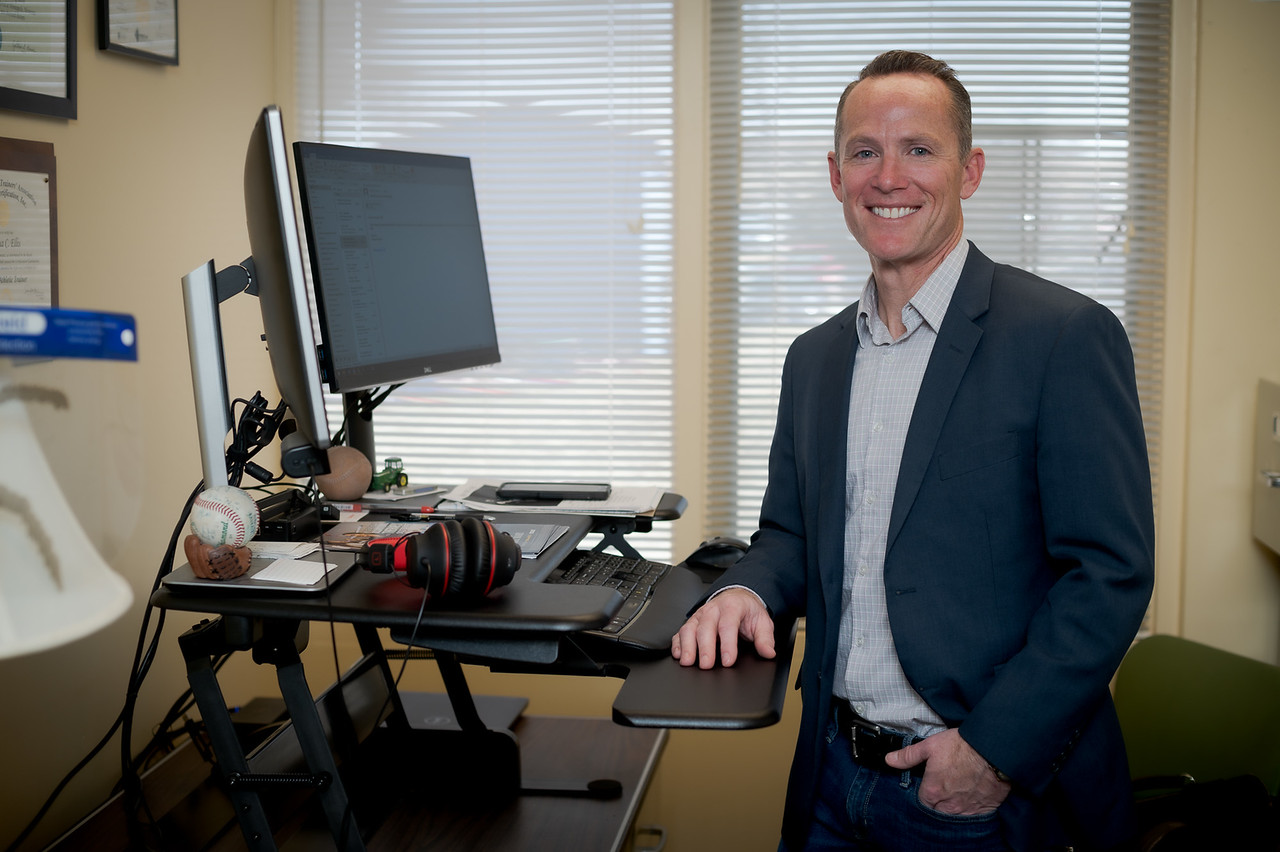Ellis enhances Aging and Death course

CHADRON – Dr. Josh Ellis, Professor in the Family and Consumer Sciences department, is incorporating knowledge and skills he gained through an End-of-Life Doula Certification from the University of Vermont into his Aging and Death (FCS 320) course.
“I felt that the curriculum for the certification was interesting and would provide more depth and breadth to the content of my course and to the students’ understanding of aging, dying, and death,” he said.
Drawing from the certification course, Ellis shares leading practices for comforting the dying person and their relatives.
“Being physically present to offer support can be comforting. If you can’t be there in person, make a phone call or send a thoughtful message. Instead of vague offers of help, offer something concrete, like preparing a meal, running errands, or babysitting,” Ellis said.
At the other end of the spectrum, some people may need solitude, according to Ellis. When they are ready to talk, being an attentive listener is important, allowing them to share feelings of sadness, anger, guilt, or confusion.
“Avoid interruptions. Let them guide the conversation. Express empathy while avoiding clichés. Say their loved one’s name: This shows you recognize and honor the person who has passed,” he said. “Silence can also be powerful and healing,”
Respect for the dying person and their inner circle is a related principle he discusses with his students.
“Holding space is the act of being present with someone in a compassionate, nonjudgmental, and supportive way as they navigate the emotional, physical, and spiritual challenges of dying. It’s about creating a safe environment where the individual and their loved ones can process their experiences and confront the realities of death without fear or pressure,” Ellis said. “Everyone expresses emotion in different ways, so we shouldn't pass judgement on another because they aren't expressing emotion in a manner that we feel is normal.”
Ellis addresses the importance of honoring each individual’s grieving timeline in his CSC course.
“Grief is not linear,” he said. “Let them feel what they feel. Avoid imposing expectations on how survivors should grieve. Avoid trying to cheer them up prematurely. Honor their rituals and beliefs, and understand that grief isn’t something we get over, like solving a problem. It’s a process to be lived through It’s also important to understand that grief is associated with important losses in general, not just people, but pets, abilities, and things as well.”
Ellis said a concept called turning toward suffering refers to the practice of facing and engaging with difficult emotions, pain, or grief, rather than avoiding or suppressing them. He wants his students to know survivors can learn and benefit from embracing their own grief.
An additional way to help survivors is to remember them over time, Ellis said.
“Grief lasts beyond the funeral. Reach out in the weeks, months, and even years after the loss. A simple message on anniversaries or birthdays of the deceased can be meaningful,” Ellis said.
Category: Campus News, Family and Consumer Sciences
